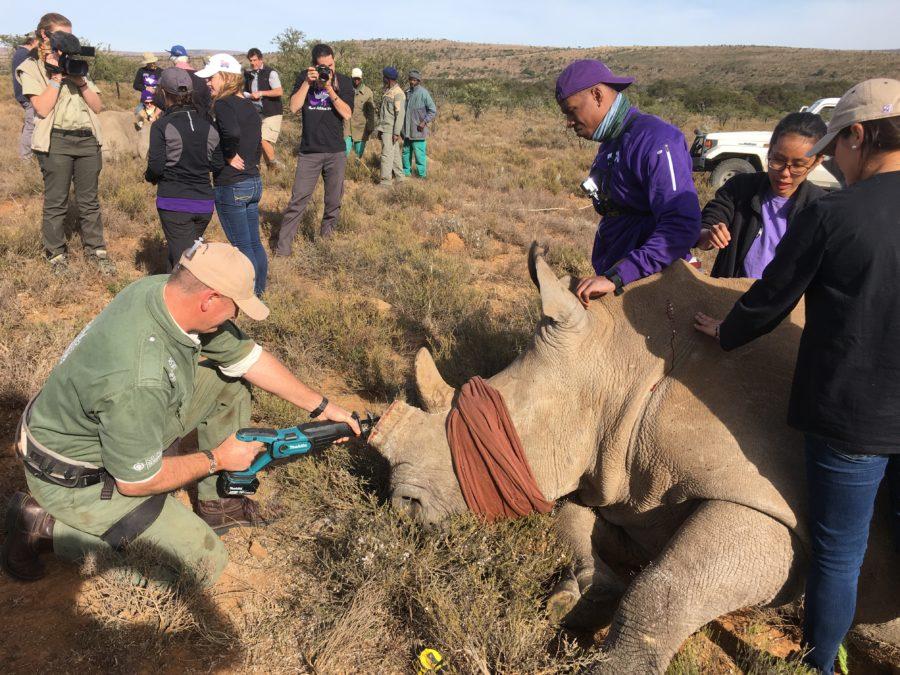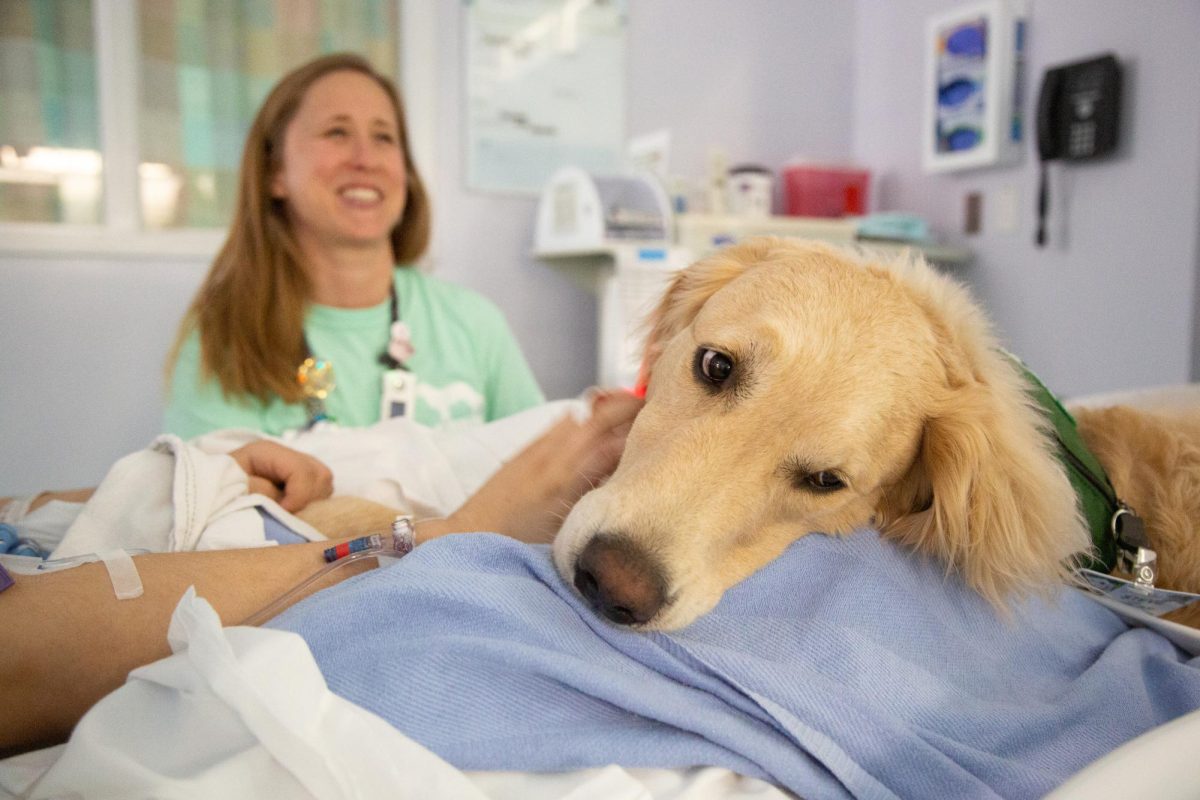Rhinos in Africa are being killed at a rapid rate, and one TCU student organization is doing what they can to stop it.
The TCU Rhino Initiative Club, a new group on campus this semester, was created by a group of students who participated in the South African Human Development & Biodiversity study abroad program last summer.
Currently, the club has 40 members.
After the trip, club president Katie Lawton said the students met up once a week at what she called the “South Africa part two” class.
“The goal of the course was to take what we learned in Africa and create a project that makes a difference for the rhinos,” Lawton said. “We wanted a way for students to get involved without going all the way to Africa.”
Lawton said that on the trip to South Africa, students went to Johannesburg and Cape Town to learn about South Africa’s history and sightsee. The students then went to Amakhala Game Reserve near Port Elizabeth, where they gained hands-on experience doing procedures on elephants, zebras and rhinos. They used their experience to learn about the global biodiversity crisis, specifically dealing with the rhino poaching issue.
“Watching a rhino be stripped of its horn to prevent it from being poached was an emotional and heartbreaking experience for all of us,” Lawton said. “It was really the tipping point where we all knew we had to do something.”
The TCU Rhino Initiative began in 2014 when Dr. Michael Slattery, the club’s campus advisor, teamed up with renowned rhino conservationist and South African wildlife veterinarian Dr. Will Fowlds to help the rhino species in Africa survive.
According to the initiative’s website, rhinos are being poached for their horns and the initiative “stands ready to help on several fronts, from organizing reduction demand campaigns and raising public awareness, to supporting protection and rescue initiatives on the ground, where poached rhinos can be rehabilitated and eventually function again in wild habitats.”
According to the Save the Rhino organization, rhino horns are very valuable in countries around the world as they are seen to possess medical benefits or religious powers. As a result, rhinos are often tranquilized, dehorned and left to bleed to death by poachers. However, rhino horns have no proven medicinal benefits at all.
Since the Rhino Initiative Club was created in October, the club has had three tabling events to raise awareness about the organization and the rhino crisis. It has also sold shirts to raise awareness and hosted a meet and greet for students interested in joining, Lawton said.
“We partnered with TCU women’s basketball for one of their home games to make it a rhino-themed game,” Lawton said. “We had a table in the arena where we could show both students and members of the Fort Worth community what we do and why rhinos are worth saving.”
Caroline Woodward is another student who went on the trip to South Africa and is now part of the Rhino Initiative Club. She said that she didn’t have extensive knowledge about rhinos prior to the trip, but she now feels an attachment to the creatures.
“Rhinos deserve more than what they are getting,” Woodward said. “I hope to spread awareness and education about the fact that rhino horns do not help medically. I also hope to raise money for Amakhala, other medical research teams and anti-poaching units.”
In the future, the Rhino Initiative Club plans on having more awareness campaigns on campus, Lawton said. She also said that the club will be hosting a Rhino Run 5K to raise money in March, tabling at the EarthX conference in Dallas in April and putting on a special event for World Rhino Day in September.






